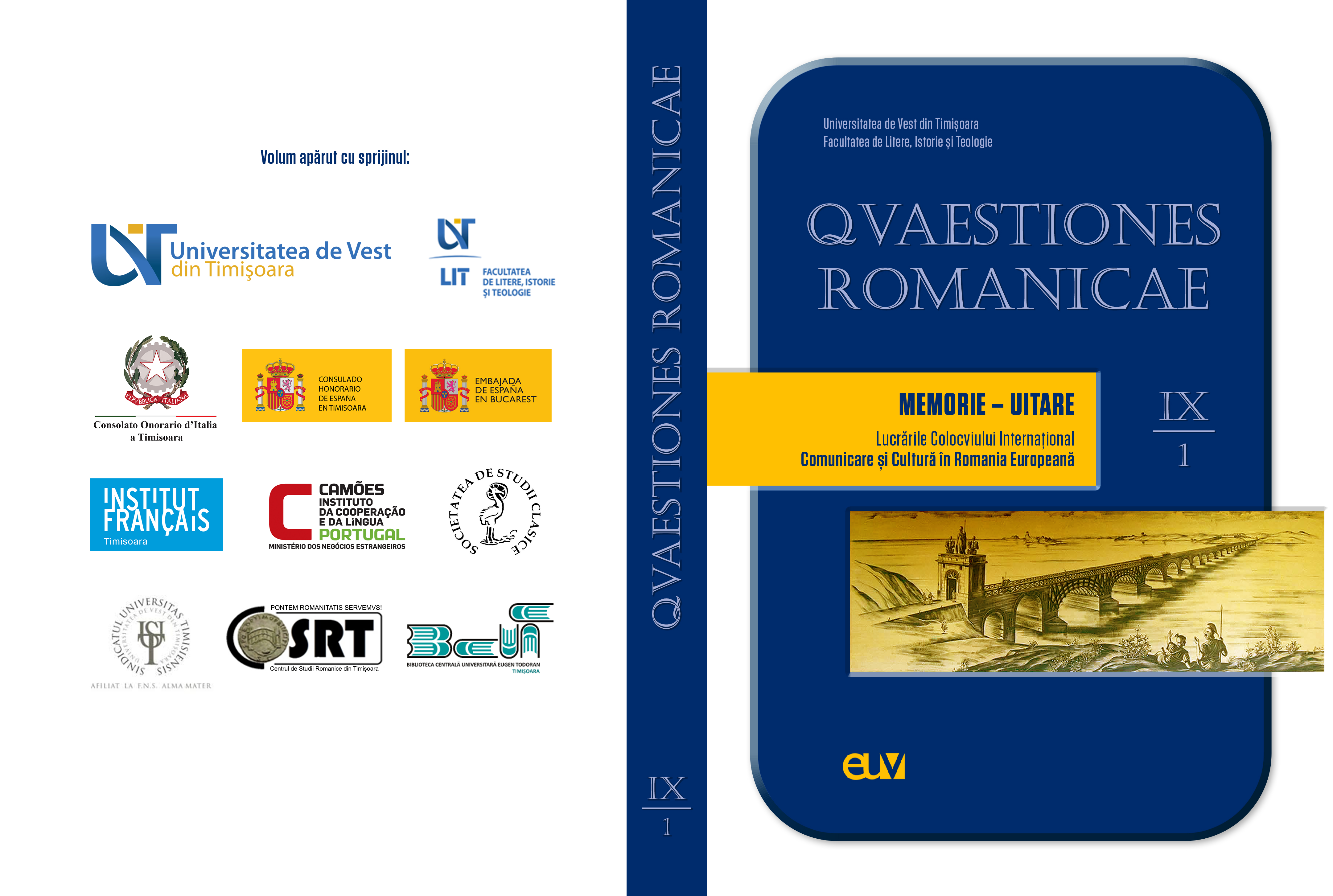Recuperarea memoriei culturale a unei comunități pierdute. Proza lui I. Peltz
Recovering the Cultural Memory of a Lost Community. I. Peltz’s Prose
Author(s): Maria PașcalăuSubject(s): Cultural history, History of Judaism, Romanian Literature, Interwar Period (1920 - 1939), WW II and following years (1940 - 1949), History of the Holocaust, History of Antisemitism, Politics of History/Memory, Identity of Collectives
Published by: Universitatea de Vest din Timişoara
Keywords: the Jewish community of Bucharest; cultural identity; I. Peltz; literature; cultural memory;
Summary/Abstract: During the interwar period, the Jewish population of Bucharest lived in the so-called “Jewish Neighbourhood”. With the establishment of the communist regime, the very existence of the Jewish community living in Bucharest was threatened and it almost disappeared because of the urban reconfiguration and of the political decisions which determined the Jewish population to gradually leave the country. Although the physical evidence of this community was destroyed, its cultural memory is still preserved in various forms with literature being one of these. Born in the Jewish Neighbourhood and through his detailed descriptions of his life in the Bucharest ghetto, I. Peltz managed to transform his prose into an instrument for preserving the memory of this community which got lost as time passed by. The present paper aims to identify in three of I. Peltz’s novels, Calea Văcărești (1933), Foc în Hanul cu tei (1934) și Israel însângerat (1946), those elements which shape the cultural profile of the Jewish community living in Bucharest before and during the interwar period. In addition, it investigates to what extent the cultural memory of a minority community manages to become an integral part of the national cultural memory by following the way in which I. Peltz’s literature succeed to enter and position itself within the Romanian literary canon. The purpose of this article is to draw the attention on the cultural and political practices used to control the process of formation of the national cultural memory. It is important to point out that these practices had almost entirely promoted the cultural identity belonging to the majority.
Journal: Quaestiones Romanicae
- Issue Year: IX/2021
- Issue No: 1
- Page Range: 384-399
- Page Count: 16
- Language: Romanian

